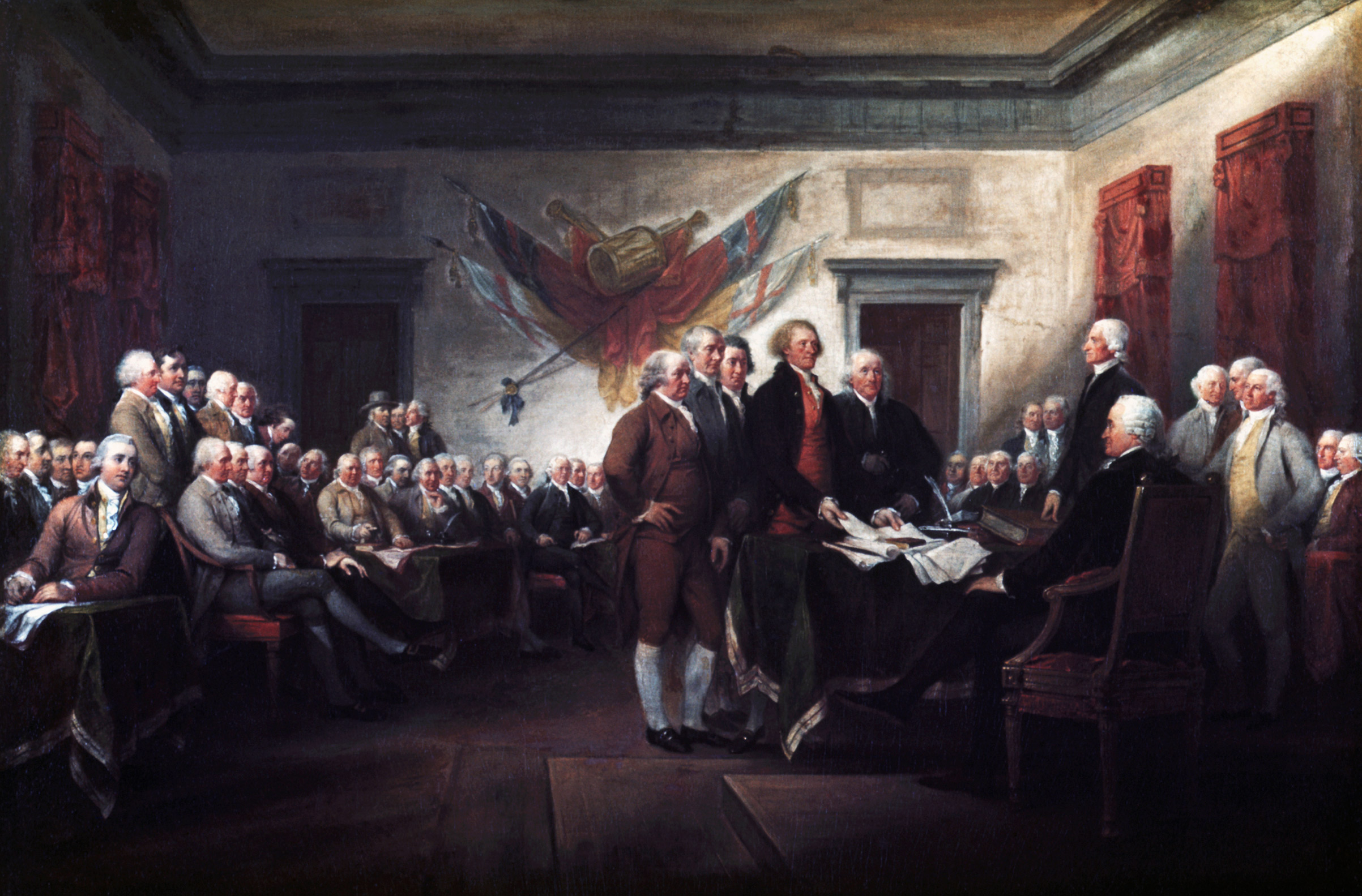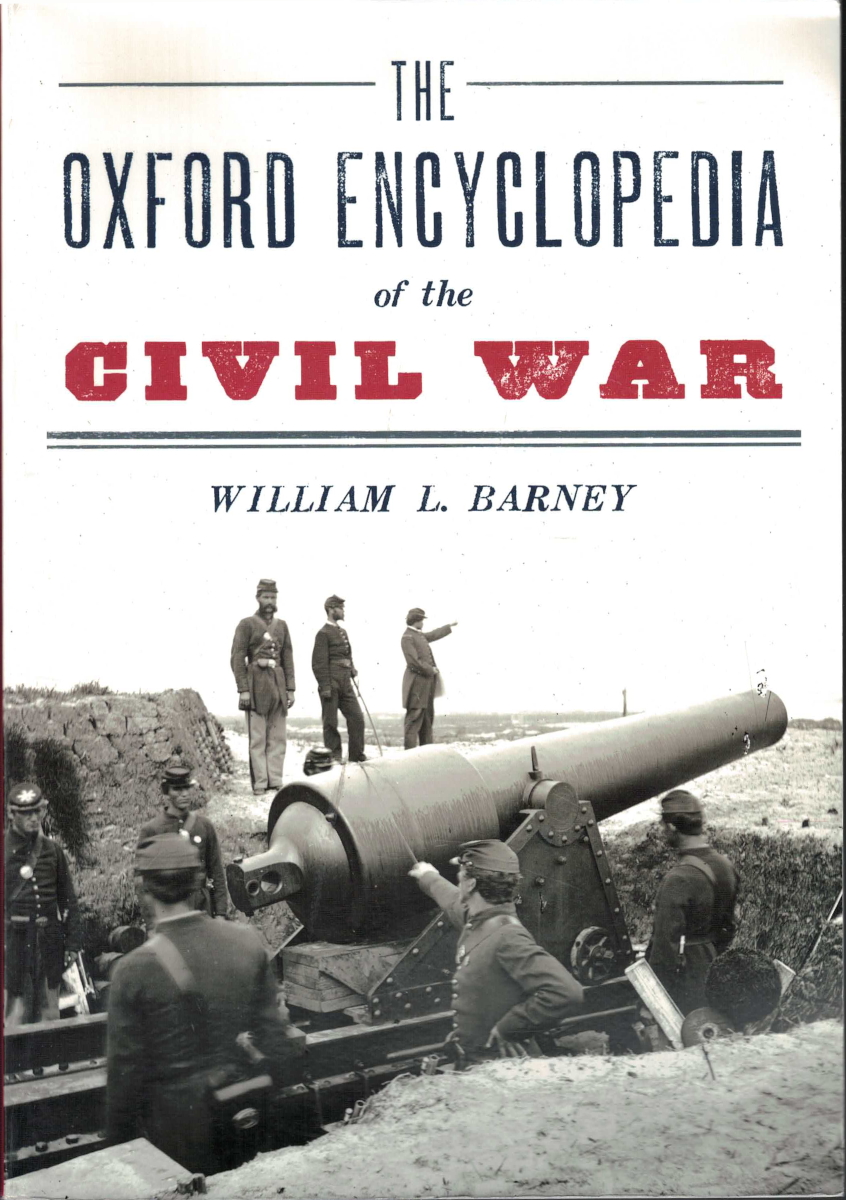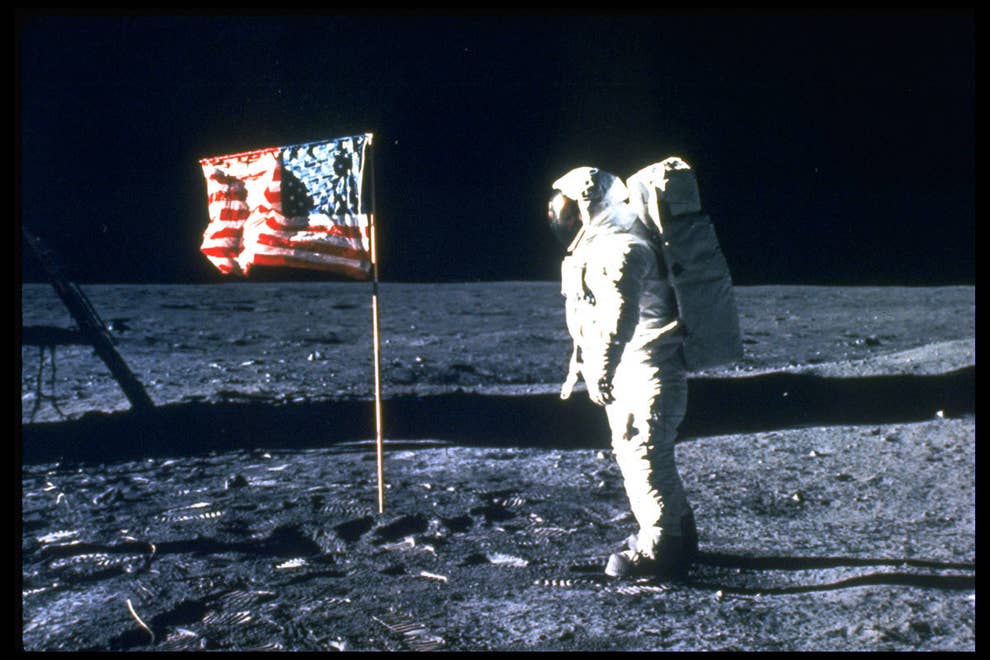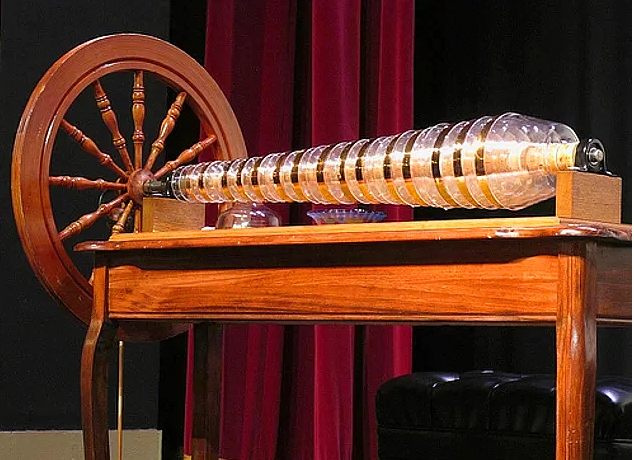The Declaration of Independence.
What is primary source?
_____ _____ are the original sources of information recorded at the time an event occurred.
What is Primary sources?
T or F: Secondary sources can come before primary sources.
What is False? (Secondary sources are derived from primary sources.)
P or S: You write an original piece of poetry for English class that describes how your day is going. 
What is primary source?
(art: The Declaration of Independence by John Trumbull)
What is ___________, _____________, __________? (There is no absolute right or wrong answers)
Your history textbook.
What is secondary source?
We use primary sources to recognize points of _____ in print and visual materials.
What is view?
T or F: Primary sources are always completely accurate.
What is False? (A diary or autobiography are primary sources, but the writer may include incorrect information in them).
P or S: You read an encyclopedia entry to learn about the Civil War.

What is secondary source?
Civil War poem: The Bivouac of the Dead by Theodore O'Hara

What is ___________, _____________, __________? (There is no absolute right or wrong answers)
A photograph.
What is primary source?
_____ _____ are derived from primary sources.
What is Secondary sources?
T or F: A basic question you should ask when evaluating a source is: Who wrote this?
What is True?
P or S: You look at a picture taken during the Great Depression to better understand the issue.
What is primary source?
map: 1881 Historical Map of Yellowstone National Park.

What is ___________, _____________, __________? (There is no absolute right or wrong answers)
A Native American artifact.
What is primary source?
We use secondary sources to get expert _____ in order to evaluate what really happened.
What is opinions?
T or F: It is important to look at both primary and secondary sources when studying a topic.
What is True?
P or S: Your teacher listens to you tell your opinion about a new school rule.

What is secondary source?
artifact: Benjamin Franklin's Glass Armonica.

What is ___________, _____________, __________? (There is no absolute right or wrong answers)
A historian explaining what the Constitution means.
What is secondary source?
Both primary and secondary sources may have a slant or _____.
What is bias?
T or F: Primary sources can be written well after events happen.
What is True? (examples of this are memoirs and oral histories)
P or S: You interview a person who witnessed a car accident to find out what happened.
What is a primary source?
from the Autobiography of Mark Twain
“People don't really read your books, they only say they do, to keep you from feeling bad.”
What is ___________, _____________, __________? (There is no absolute right or wrong answers)